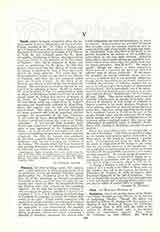

Vacancy, the state of being vacant, free, unoccupied: a term applied to an office or position devoid of an incumbent, as a vacant benefice, bishopric, parish, professorship, etc. Vacancies occur by the voluntary act of the incumbent or through compulsion. Generally speaking any cleric, even the pope, for just reasons may resign his office, the resignation becoming effective when duly accepted by the competent superior. As the pope has no superior, Celestine V, who renounced the papacy, published a special Constitution (L. I, tit. 7 in 6°) declaring that the College of Cardinals is competent to accept the formal abdication of the pope. Under certain conditions with approval of proper authority, an exchange of benefices or offices is permitted. Certain acts, licit or illicit, are equivalent to tacit renunciation, for example, when one accepts a promotion, makes a solemn religious profession, violates the canons concerning a plurality of benefices, renounces the clerical state.
Under compulsion one loses his incumbency by death or removal. Some vacancies are provided for before they actually occur; for example, coadjutors may be named with the right of succession, the pope may make an appointment to go into effect at the death of the present incumbent, an exercise of the so-called jus praeventionis, at one time quite common. Removal ordinarily is a punishment, and no one should be punished without cause (sine culpa, nisi subsit causa, non est aliquis puniendus. Reg. 23 in 6°). The cause is usually, though not always, a crime committed. Where removal is a penalty, the crime for which it is inflicted must be proven juridically. If the reason for dismissal be merely unfitness (causa non criminosa), a judicial trial is not generally obligatory, though certain formalities are necessarily observed to establish the existence of sufficient warrant for removal, as well as to give the occupant an opportunity of being heard. This is particularly true of the administrative removal of parish priests or rectors in accordance with the Decree “Maxima cura” (S. C. Consist., August 20, 1910). This decree permits such removal (without judicial trial) on account of insanity; inexperience or ignorance of such nature as seriously to impede a pastor in his work; deafness, blindness or other ailment, physical or mental, incapacitating a rector for a long time, unless provision can be made for a coadjutor; hatred or ill will on the part of the people, though unjust and not universal; loss of reputation among men of repute; maladministration of temporal affairs; continual neglect after one or two admonitions of parochial duties of moment; disobedience after warning of the bishop’s precepts in grave matters.
Some, like removable rectors, are transferable at the will of the bishop. Care however should be taken not to transfer such persons against their will to inferior posts, as this would be considered a punishment. Vicars-general and deans lose their office by the death or resignation of the bishop or the cessation for any reason whatever of his jurisdiction. A vicar capitular or administrator of a vacant see retains his office till the papal Bulls appointing a new bishop are duly presented. No serious change of moment in the status of a diocese is permitted during an interregnum in accordance with the prohibition: Ne sede vaeante aliquid innovetur (Deer. L., III, tit. 9).
In liturgy a Sunday is said to be vacant when no mention of it is made in the Office or Mass; such are the Sundays that fall on the feast or the Octave of Christmas, St. Stephen, St. John Evangelist, Holy Innocents, Epiphany or the vigil of Epiphany. Days too are liturgically vacant or free when unoccupied by a feast, privileged vigil or privileged ferial office: they are days to which no special Office is assigned.
ANDREW B. MEEHAN

